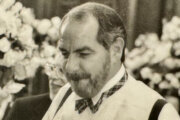PARIS (AP) — A metallic scent, distinctly heavy, lingers from a repair made only a few hours earlier.
Before the day’s first wheelchair rugby competition even began, Ottobock employees Adam Gill and Chris Voitl had all hands on deck as they ground a sharpened side panel back into its original round form with precision. They were servicing a wheelchair for a Canadian wheelchair rugby player, and it was imperative that his equipment be ready for the day’s competition.
It was one of hundreds of repairs that Gill, Voitl and their Ottobock colleagues tackle daily at the Paralympics in Paris.
“Yeah, this is intense,” Gill said. “It is the pinnacle of my profession so far. It’s the best thing I’ve ever done.”
Ottobock is a global medical technology company whose relationship with the Paralympics spans decades. In 1988, a group of four Australian prosthetists with the company thought there could be an opportunity for them to support Paralympic athletes with on-site repairs and assistance. They set up a modest white tent at the Seoul Games and got to work. Now, the technician team for the Paris Games has expanded to include 158 technicians from more than 40 countries.
Ottobock’s main operation hub is based in the athletes village, but there are also 14 in-venue service centers and one mobile repair team, ready to assist when called upon.
Gill, a prosthetist and orthotist for Ottobock’s Australian subsidiary, and Voitl, an industrial mechanical engineer based in Germany, work out of an in-venue service center at the Champs-de-Mars Arena where their focus so far has been on wheelchair repairs. Their workshop is significantly smaller than the 720-square-meter repair center in the athletes village, but it gets the job done. Voitl’s welding table is positioned in a small corner of the room, where he sits behind a red curtain to shield passersby from rogue sparks.
The degree of in-game assistance Ottobock technicians provide depends on the sport. During wheelchair tennis, technicians are allowed up to 10 minutes to assess, troubleshoot and repair equipment problems on the court. Ottobock calls this type of service a “pit stop,” comparable to repair tactics used in Formula 1 racing.
“You kind of get off the field of play and you wipe your forehead and think, Oh, my God, great, the game gets to continue on,” Gill said, describing a time he completed a “pit stop” repair during a wheelchair tennis match. “And I guess that’s the whole thing, right?”
Gill described the company’s broader strategy for repairs as a triage. Athletes competing the same day have equipment concerns addressed first, with training athletes’ concerns addressed second. Jobs can take as little as 30 seconds or as long as two days to complete, depending on their complexity. In some cases, athletes are given crutches or wheelchairs to hold them over until their own equipment can be repaired.
Modern wheelchairs and prosthetics used by Paralympians aren’t cheap — some of the most advanced products, especially those used by runners, can cost up to $50,000.
For some athletes from developing countries, a visit to the repair shop may be the first time they have access to top-quality gear, said Heinrich Popow, a former Paralympic track gold medalist for Germany who works as an Ottobock brand ambassador.
“It’s not just about the competition; it’s about giving them the tools they need to live better lives back home,” he said.
Popow recalled how an athlete from Kazakhstan approached him last week with a desperate plea for a new prosthetic limb.
“It was heart-breaking,” Popow said. “We took his measurements, and a few days later, we handed him a brand new prosthetic. He just broke down in tears. That’s when you realize what it means for them.”
The main repair shop in the athletes village is staffed by technicians from 42 countries, speaking 32 different languages,” Ottobock spokeswoman Merle Florstedt said.
The free repairs at the Paralympics are “part of our company DNA,” she said. “But we also get attention for being an official partner and can do marketing with using the logo and telling our Paralympics story.”
The relationship between Ottobock and Paralympians is not exclusive to the athletic arena. Stuart Robinson, a leader on Britain’s wheelchair rugby team, said he recently used Ottobock’s repair center to fix a flat tire on his personal, non-rugby wheelchair.
“I think when the (patch) was done, from the guys who are actually here at the venue, I was in and out in five minutes,” Robinson said.
Sydney Satchell, a sitting volleyball libero for Team USA, also noted the speed with which a personal prosthetic issue was addressed.
“My socket was getting a little worn out, so I was able to go in there and get some really good help,” Satchell said. “They have been absolutely superb and the process has been easy.”
For Gill and his fellow technicians, these everyday repairs are sometimes the most rewarding. The Ottobock team completed 1,000 repairs before the Paralympic Games even began, a milestone that Ottobock organization directors Peter Franzel and André Müller emphasized in a text message
“That means 1,000 less problems on earth and 1,000 smiles on the faces of the athletes,” they wrote.
For Paralympians like Satchell, the ability to have such easy access to repairs and maintenance for devices reflects growing changes in the way disability needs are prioritized, not just at the Paralympics, but in the broader global community.
“I think where the world is going, recognizing that mobility is necessary for how we impact lives and where we’re going, we don’t have to look down on anyone in a chair or have to be googly-eyed with somebody that is wearing a prosthetic,” Satchell said. “Now we’re just seeing that and shining a light on it from a sports perspective.” ___
Julianna Russ is a student in the undergraduate certificate program in the Carmical Sports Media Institute at the University of Georgia.
___
AP Paralympics: https://apnews.com/hub/paralympic-games
Copyright © 2024 The Associated Press. All rights reserved. This material may not be published, broadcast, written or redistributed.






